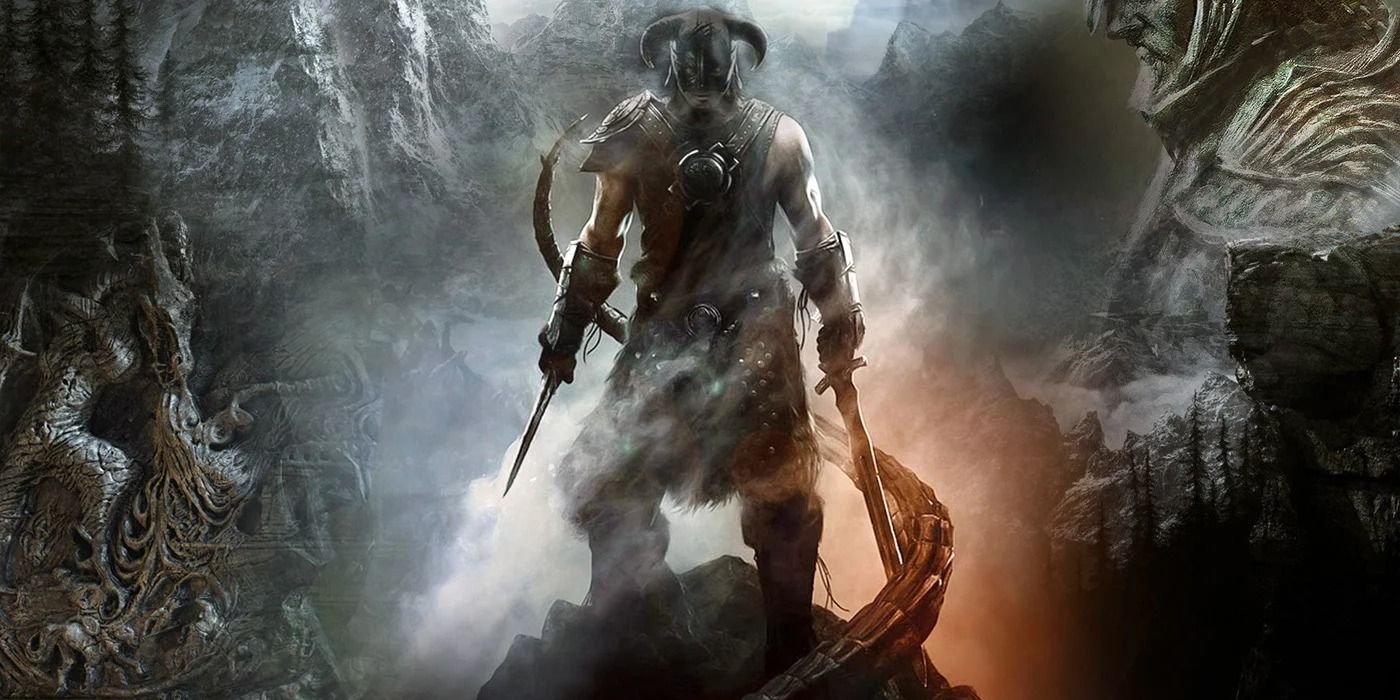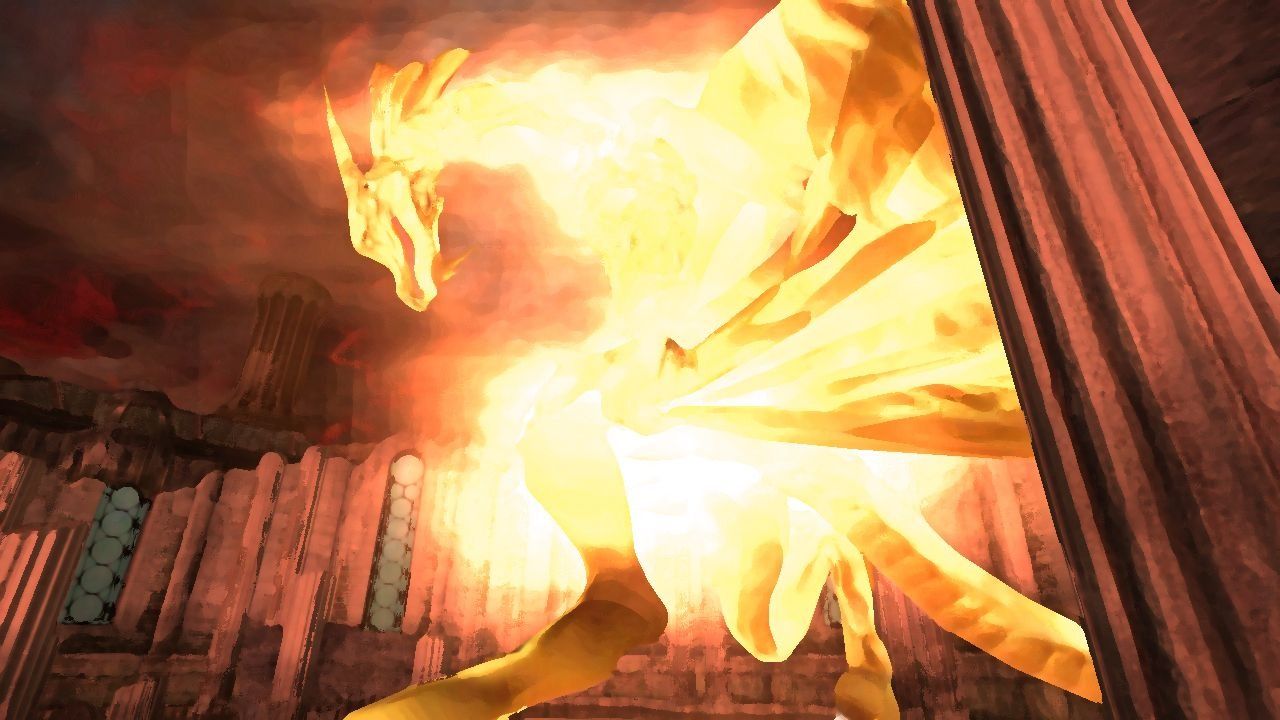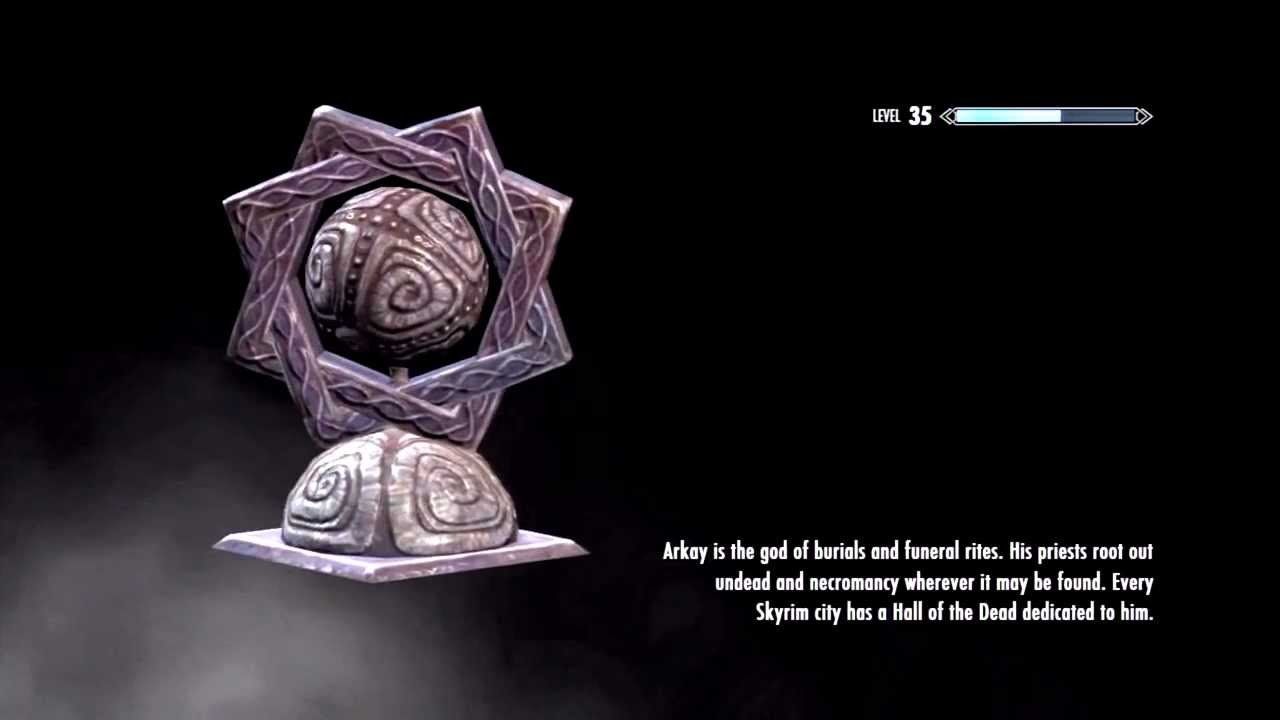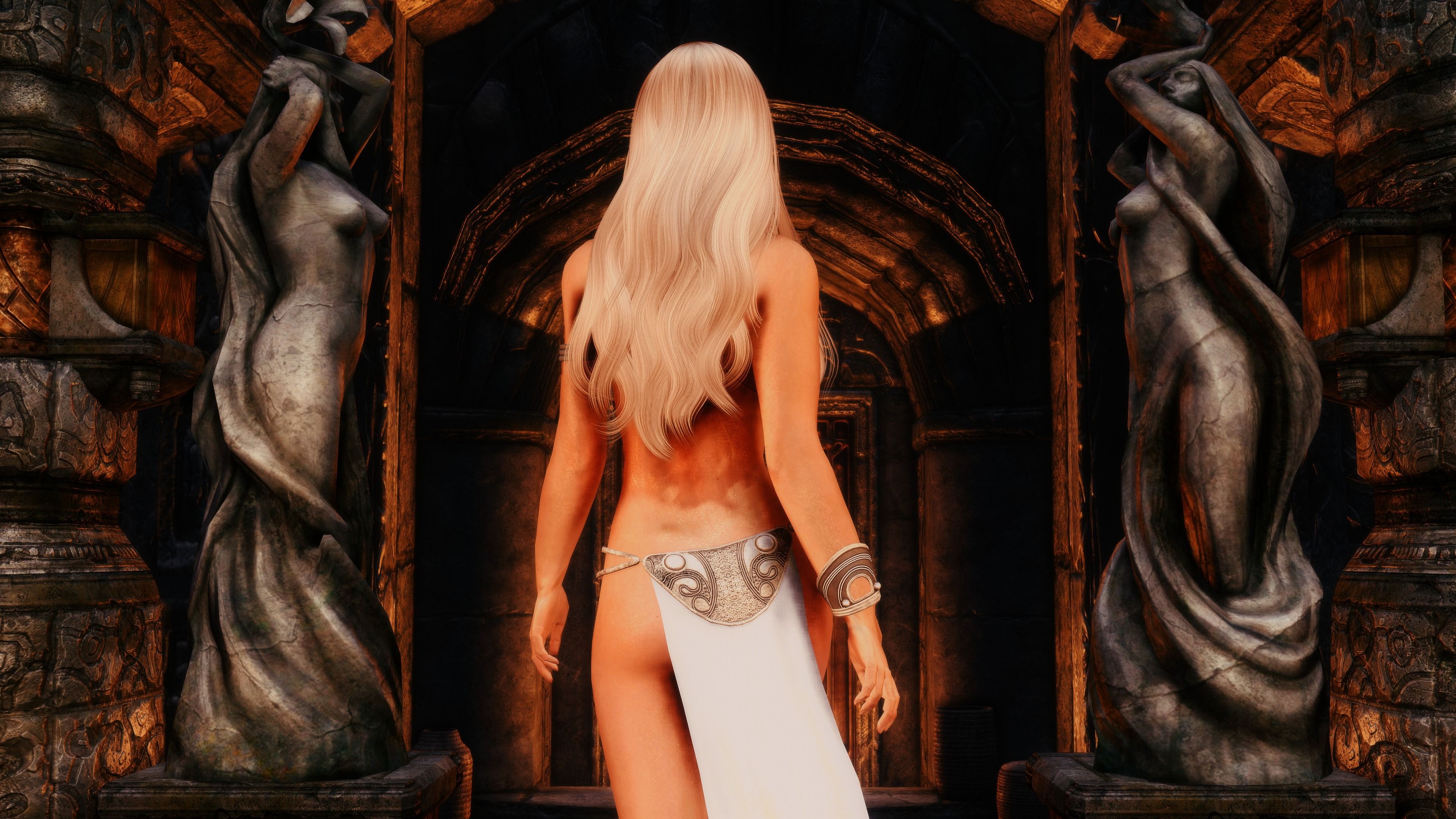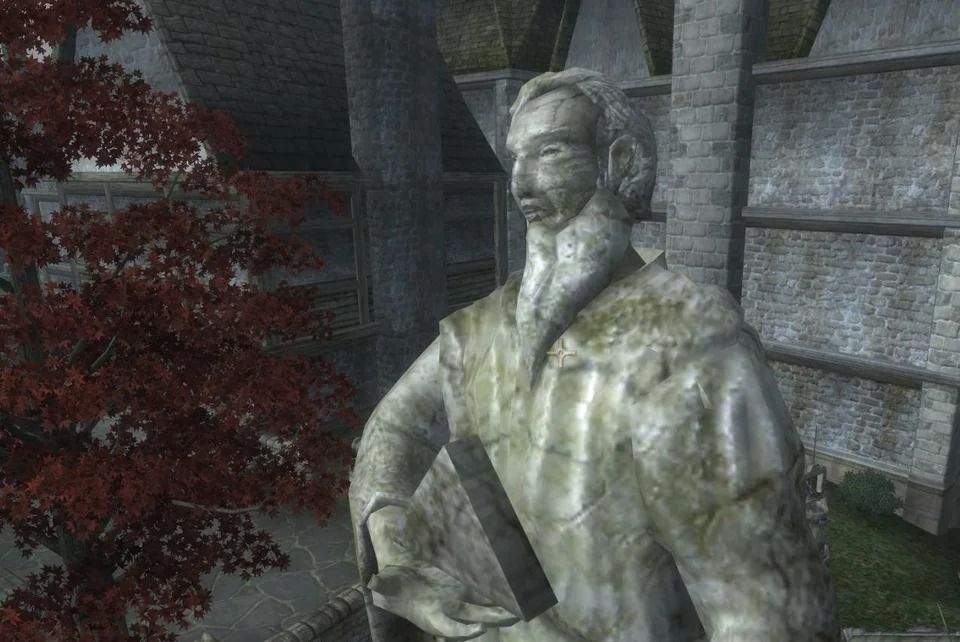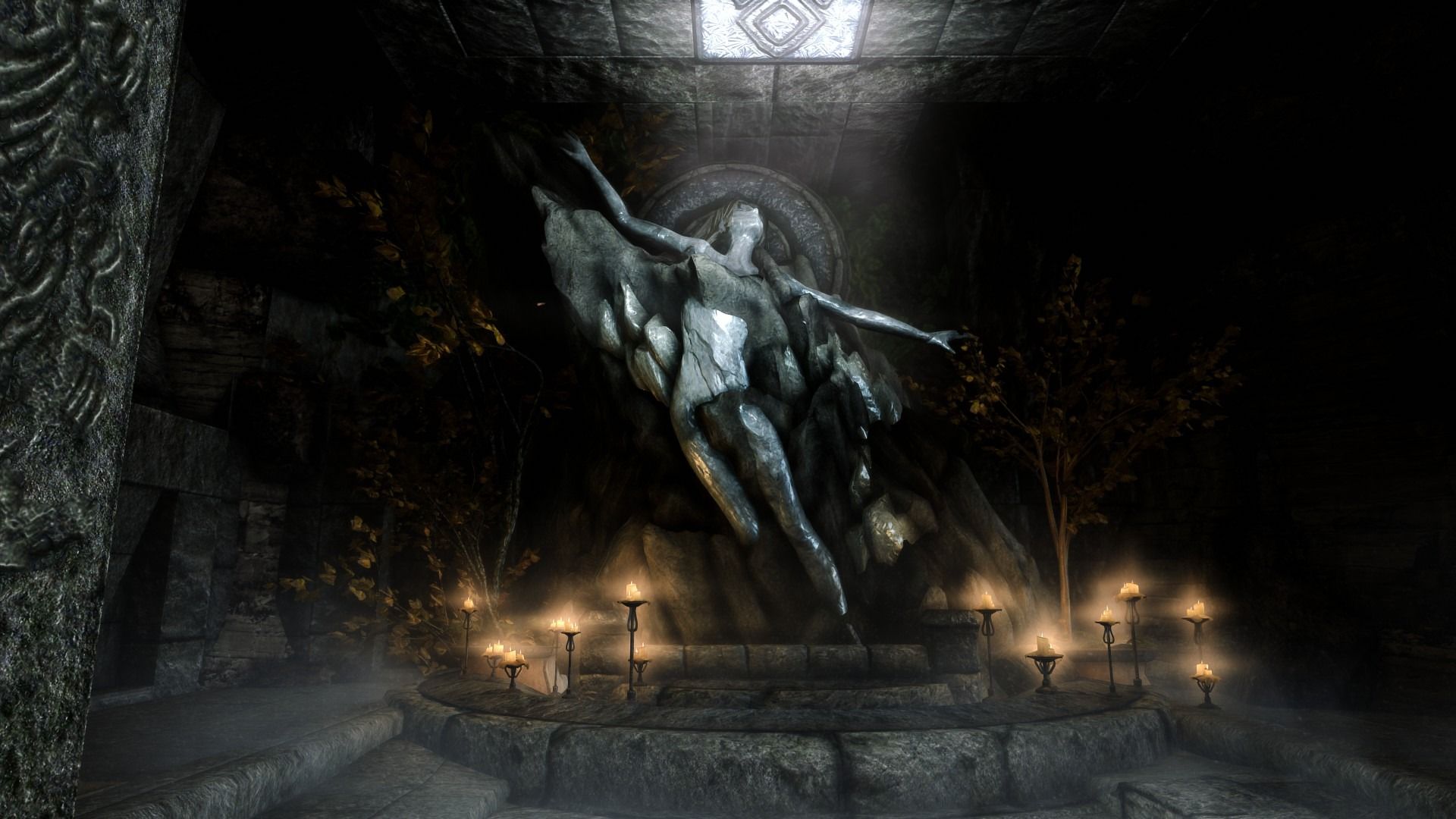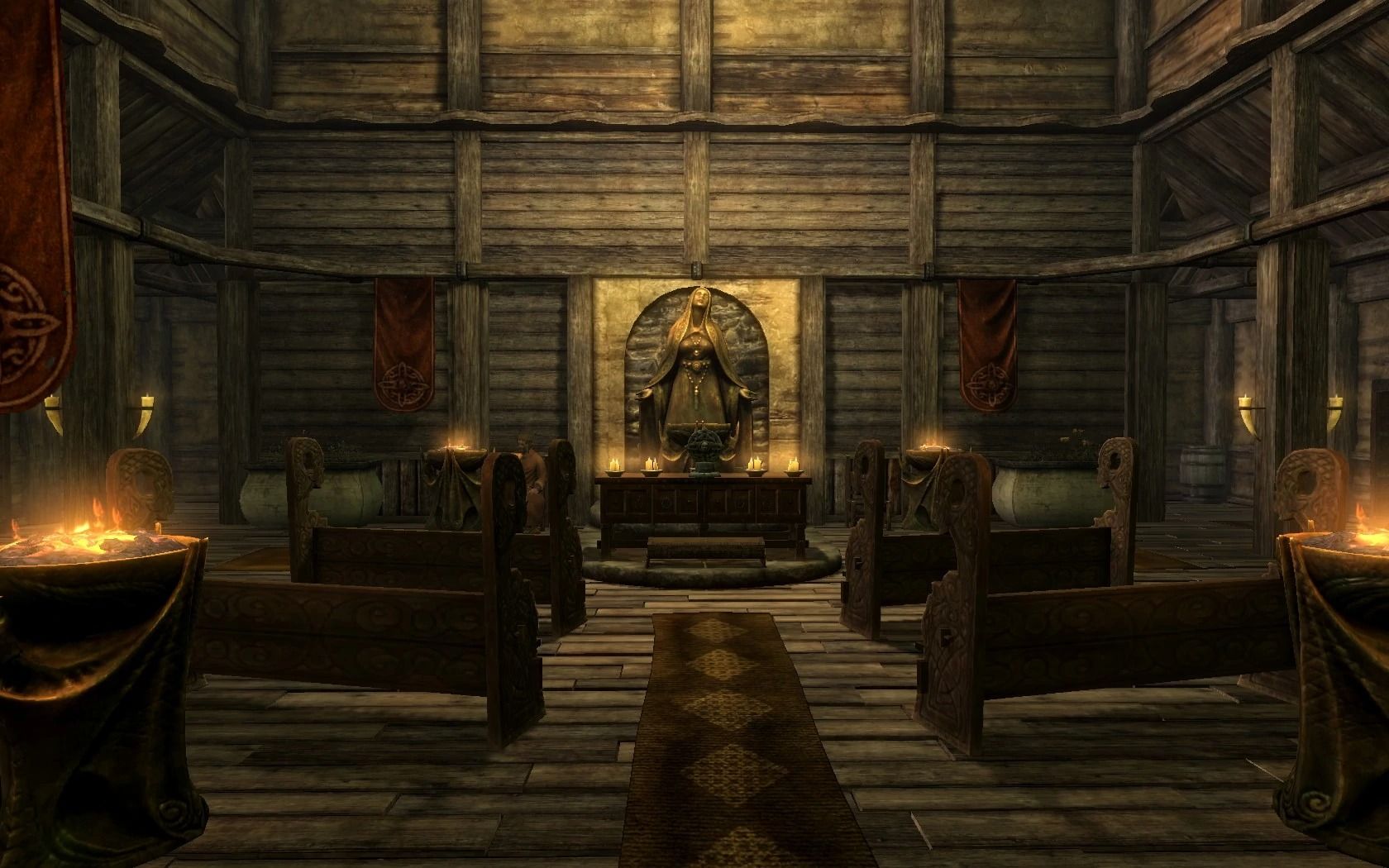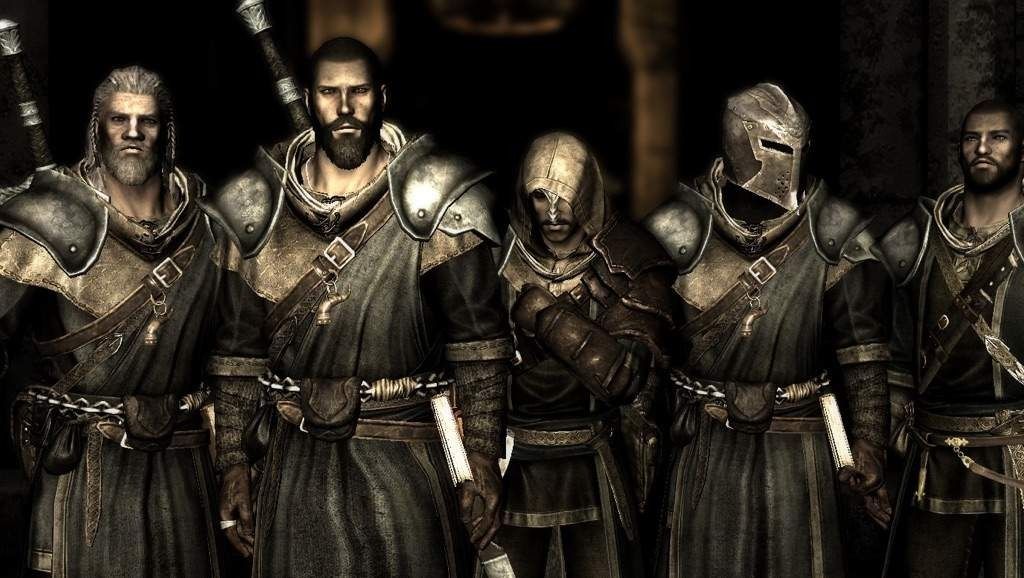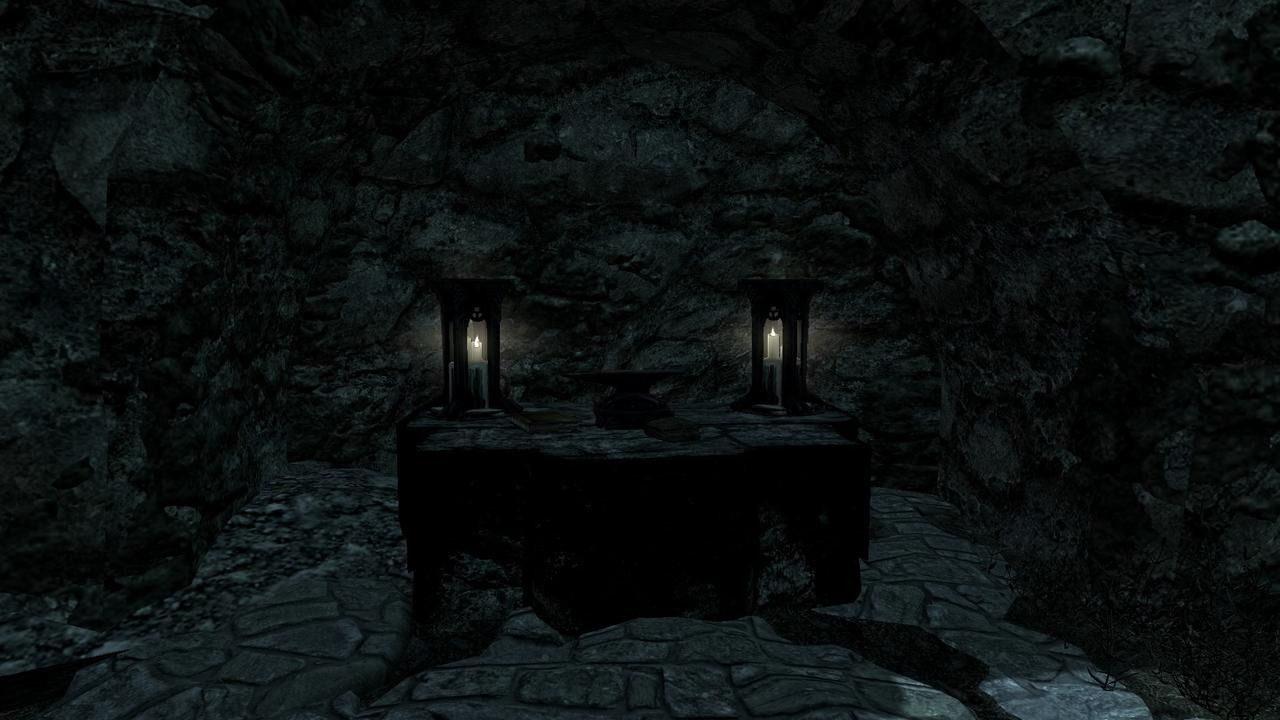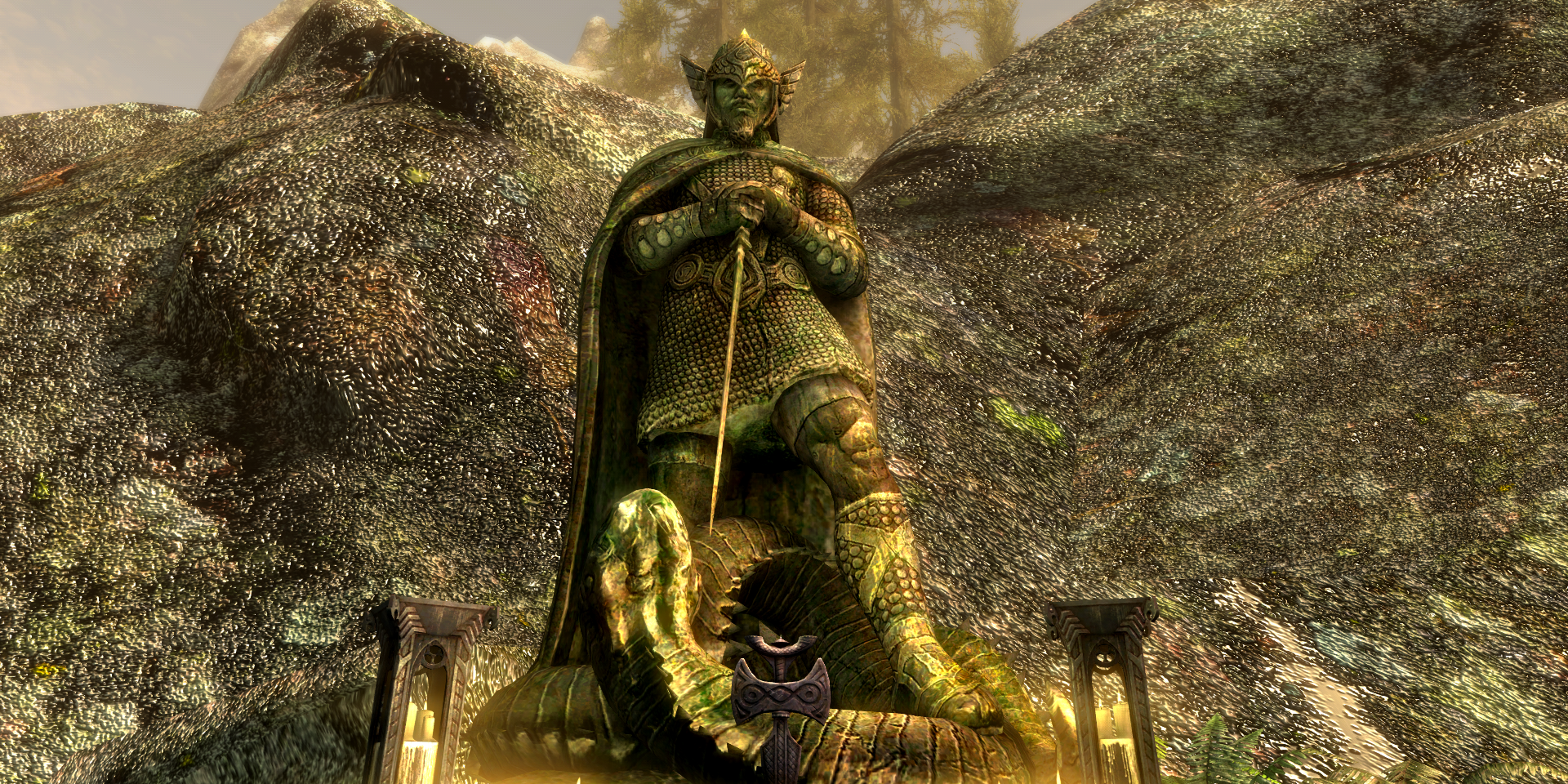In Skyrim, one of the first lines of dialogues players hear mentions the Eight Divines right before the player's scheduled execution. The priestess begins stating the prisoners' last rites; "As we commend your souls to Aetherius, blessings of the Eight Divines upon you-" before she is interrupted by a stormcloak wishing to move things along. These Eight Divines play a pivotal role in the Civil War storyline in the game, and understanding them can help the player to understand the actions of some of the more religiously inclined characters like the Stormcloaks.
Akatosh
The first of the Eight Divines is Akatosh, the Dragon God of Time, and longtime fans may recognize this God as playing an important role at the end of Oblivion when he does battle with Mehrunes Dagon. Akatosh is considered the God of Time as he was the first of all the divines to come into being, and with his creation time began to flow. He is worshipped widely across all of Tamriel and even appears in the Elven pantheons as Auri-el the Dragon God. Akatosh represents the qualities of both endurance and invincibility, and is the patron god of the Empire. That said, many in Skyrim still worship him, as his worship is not exclusive to the Empire.
Arkay
Any with a penchant for exploring the holds of Skyrim have likely run into a Hall of the Dead devoted to Arkay, as there is one in each major city. Arkay is the god of birth, death, and burials, and as such is widely worshipped across not just Skyrim but all of Tamriel. Generally speaking, Arkay loathes necromancy, as it is seen as a perversion of the natural cycle of birth and death, and his clergy see over burial and funeral rites with his blessing.
Dibella
The third of the Eight Divines is Dibella, the Goddess of Beauty. Like many real-world Goddesses of Beauty, she represents pleasing aesthetics and women, but her domain extends further into the arts as well. Dibella governs all forms of art including painting and musicianship, as the innate beauty of those things pleases her. Furthermore, Dibella has some influence in the sphere of love, pushing her followers to explore its mysteries. Unfortunately, much of the player's interaction with this Goddess' temple is negative, such as stealing the Golden Statue of Dibella for the Thieves' Guild or trashing it with the Daedric Prince Sanguine.
Julianos
Julianos is the God of Wisdom and Logic, and his followers play an extremely important role in Tamriel. The titular Elder Scrolls themselves, which are said to contain knowledge beyond even that of the Aedra and Daedra, are kept by the clergy of Julianos. For this reason, many suspect that the Cult of the Ancestor Moth, which plays an important role in Skyrim's Dawnguard expansion, is a subset of Julianos' temple. Beyond this role, Julianos also governs law and history, and his Nordic counterpart, Jhunal, also has influence over language and mathematics.
Kynareth
The fifth Divine is Kynareth, the Goddess of the Heavens, winds, and elements. She is referred to by the Nords of Skyrim as Kyne, a name which may sound more familiar to Skyrim veterans, and plays an extremely important role in the ancient lore of Skyrim. The Throat of the World, the mountain on which High Hrothgar sits atop, is the sacred mountain of Kynareth, as it was here that she sent Paarthurnax the dragon to teach the first Nordic heroes how to shout. Because of this, the Greybeards that teach the Dragonborn his first shout worship Kynareth as their patron deity.
Mara
Though Dibella does govern some aspects of love, the true Goddess of Love is Mara. Players may be familiar with Mara as she plays a pivotal role in every marriage in Skyrim. In order to marry another character, the Dragonborn must first seek out the temple of Mara in Riften. After talking to the acolytes here, the player must purchase an Amulet of Mara and speak to their would-be spouse. The ceremony that follows is held at the same temple to Mara in Riften, and since it is the only one, there are likely ceremonies pretty frequently.
Stendarr
The seventh and penultimate Divine is Stendarr, known as the God of Righteous Might and Merciful Forbearance. Like those that follow Arkay, Stendarr's worshippers do not take kindly to undead, necromancers, or Daedra, as they threaten the safety of others. The Vigilance of Stendarr which some players may have come into contact with have been condemned for not fully representing Stendarr's values, however, as the God cherishes mercy and fairness, something which the Vigils of Stendarr have openly admitted to lacking. The Dawnguard that opposes the vampiric threat in Skyrim's expansion are actually an off-shoot of the Vigilance of Stendarr, as both seek to root out the undead menace.
Zenithar
The eighth and final divine, Zenithar, governs work, commerce, and trade. Naturally, his influence leads to him acting as the patron god of merchants, the working class, and all those that value hard work intrinsically rather than for the rewards it offers. Zenithar also inspires the many craftsmen of Skyrim, as is indicated by his holy symbol being an anvil. He is thought to be closely related to Kynareth, as the materials which followers of Zenithar use to craft come from the nature that Kynareth created and watches over.
Talos
Beyond those eight Aedra, there is actually a ninth divine, Talos. This deity originated as a human mortal named Tiber Septim, and was responsible for the unification of all of Tamriel under one empire, but ascended to godhood following his death. Due to his peculiar status as both moral and God, the Thalmor forced the outlaw of his worship and his removal from the Nine Divines pantheon. This outraged the Nords, who see Talos as their patron deity, and sparked the civil war that rages throughout Skyrim. Furthermore, Talos was a Dragonborn just like the player, which is why his blessing allows the player to use shouts more frequently.
Skyrim is available now on PC, PS3, PS4, Switch, Xbox 360, and Xbox One.

